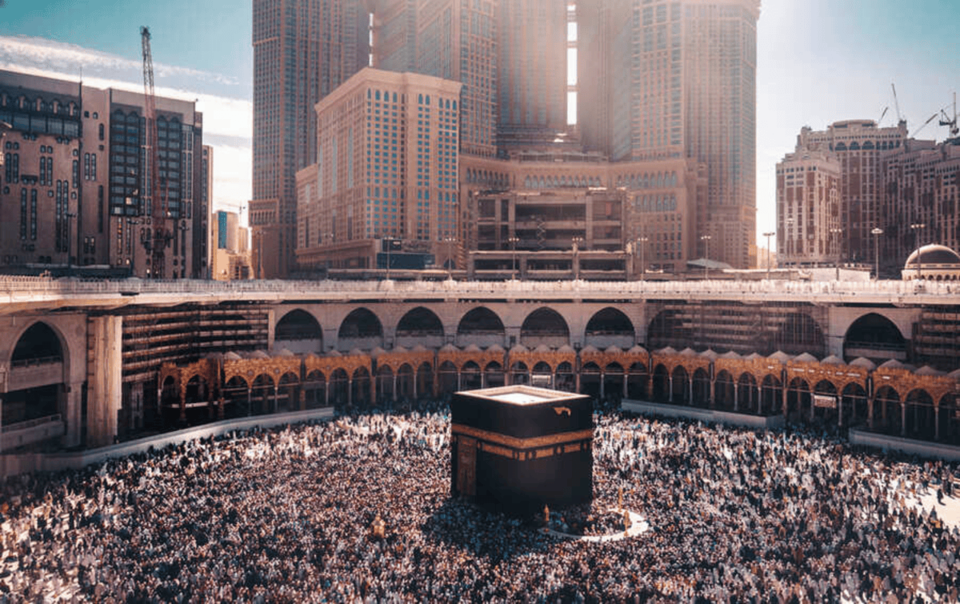Hajj and Umrah are two of the most significant religious pilgrimages for the Islamic people. Before going on these sacred journeys, you’re required to plan carefully, both spiritually and financially. For many, the financial burden and maintenance can be tough as there are several types of expenses included. Read this article till its end to get essential tips and guidance on smart budgeting for Hajj and Umrah travel from any corner of the world.

What Are the Major Expenses During Pilgrimage?
As a long-haul pilgrim, you need to know what are the fundamental expenses that are involved in the planning. Before you start planning your Hajj or Umrah trip, get the following expense points noted:
This includes airfare to and from Saudi Arabia. This is the primary cost that varies depending on your departure city and the time of year. One more thing that you can’t ignore is accommodation. Your stay in Makkah and Madinah can decide the basics of your expenses as choosing luxury hotels will cost more naturally. Also, if you choose hotels near the Holy Mosques or the Holy Kaaba, the entire expense grows.
Another consideration in your pilgrimage is meals. Generally, food costs a good number of bucks abroad. Transport between Makkah, Madinah, and other holy sites is another factor that contributes majorly to your expense. Public transportation, taxis, or private car services all come with different price points. Hajj and Umrah pilgrims must obtain a visa, and there may be additional fees or taxes to be paid.
There are also some other miscellaneous costs like Souvenirs, health insurance, and personal items for the trip. These additional factors are often overlooked but can add up to your overall expense. So, be careful accordingly in advance.
Traveling During Off-Peak Seasons
When you are choosing to have a trip to perform Umrah is a considerable factor in calculating the expense. Hajj has a specific time of year to perform, but in the case of Umrah, there is flexibility to perform this year-round. If you choose the months following Ramadan or outside the peak holiday seasons, you will see fewer pilgrims, and that would eventually get you better deals on flights and accommodation.
Traveling off-peak also comes with other advantages. Fewer crowds mean a more serene spiritual experience, shorter waiting times at holy sites, and the opportunity to explore the cities of Makkah and Madinah more peacefully.
How To Choose the Right Hajj or Umrah Package?
Selecting the right Hajj package or the best Umrah package is one of the most critical steps in planning your pilgrimage. Note down the following things in mind:
First check carefully what's included in the package, such as flights, accommodation, meals, and transportation. Some packages might seem affordable initially, but you’ll later discover that they may not include important services.
Check proximity to holy sites. It totally depends on your potential to afford it. If you stay closer to the Holy Mosques, it will definitely cost you more and that’s entirely reasonable. However, you can consult your trip managing agency to remain budget-conscious in opting for accommodations.
Group packages are often more affordable, while personally customized packages offer more convenience and personalization but come at a higher cost. It’s advisable to take the time to compare packages carefully, which can surely save you from unnecessary expenses. Doing so will ensure that you are enjoying the money that you’re investing in purchasing an Umrah/Hajj package.
Saving Tips for a Budget-Friendly Pilgrimage
While it’s essential to focus on the spiritual aspects of your pilgrimage, there are several ways to save money without compromising your experience:
Booking flights, accommodation, and packages well in advance can help you lock in lower prices. If staying in a five-star hotel is not a priority for you, choose budget hotels that offer clean, comfortable stays at a fraction of the cost.
Eating at local restaurants or purchasing food from supermarkets can save you a lot of money compared to dining at hotel restaurants, or you can choose a package that provides a meal option. Try to avoid overspending.
Make Good Financial Planning
To perform Umrah, you need to have good financial planning. Try to save money for a long time rather than arranging a huge amount at one time. Also plan it accordingly where, why, and how much you should spend. When you plan it with time you avoid making mistakes. Even if you make mistakes, you will at least have time to rectify them.
Common Budgeting Mistakes to Avoid
There are several mistakes that pilgrims generally make while planning or going for a Hajj or Umrah trip. The first and foremost mistake is that some travelers don’t include visa fees and travel insurance in their budget. It's recommended to set aside a fund for any other costs such as visa fees, medical emergencies, or sudden flight changes. Most travelers face issues in handling their additional expenses like shopping during Umrah. Especially in this case, you should be aware of unnecessary spending.
Balancing Spirituality & Financial Planning
While on a heartfelt religious trip, it’s essential to create a balance between your spiritual intentions and financial planning. While it feels good to experience luxurious accommodations or additional services, remember that the true purpose of Hajj and Umrah is spiritual fulfillment only. That’s why excessive luxurious settings may not be required unless extremely necessary.
So, if you’re on a budget, that’s entirely acceptable. A modest and well-planned journey can be just as rewarding as a more luxurious one. Book your Umrah package from Kolkata or any other Indian city and enjoy the ultimate spiritual refreshment on your pilgrimage tour.
Focus on creating a budget that aligns with both your spiritual goals and financial situation. This will help you return home with cherished memories rather than financial stress.
Conclusion
Planning a Hajj or Umrah pilgrimage is a deeply spiritual journey, but it also requires practical financial planning. Understanding the major expenses, choosing the right travel package, and using money-saving tips can help you make the most of your pilgrimage without wasting your budget. By balancing spirituality and financial responsibility, you can go on a journey that enriches both your soul and your financial well-being.















